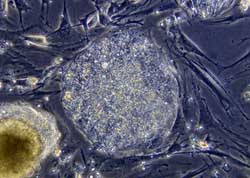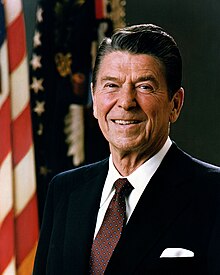TILL HE KNOWS...?
|
Bob Dylan's Blowing in the Wind gave my
generation the question that we railed at the establishment-especially the one
in Washington. First, it was directed at those opposing integration and later
it became a peace song protesting the war in Viet Nam. Along with We Shall
Overcome and The Times Are A-Changin', Blowing in the Wind
gave voice to the outrage against the policies of our government and supplied
the soundtrack of the 60s. It seems that we need to dust off that song and resurrect it as the soundtrack for the 21st century. Several months ago, Ronald Reagan died after many years of slowly drifting away with the dreaded disease of Alzheimer's. The more recent death of Christopher Reeve due to a spinal cord injury was the last straw. He gave voice to those with spinal cord disorders and spent years campaigning for stem cell research. As I thought about this tragedy, Dylan's question returned to me: "How many deaths will it take till he knows that too many people have died?" Like any intrinsically true sentiment, Dylan's question has applicability today. How many more deaths will it take before the federal government funds stem cell research? I teach a number of ethics related classes at the college level. In these classes, we attempt to develop a template to address ethical issues rather than merely resorting to emotions to decide an issue. I use Nancy Reagan as an example of what we shouldn't do-make a decision based on emotions rather than an objective criterion. Does anyone think that Nancy Reagan would have been for stem cell research had it not been for her personal tragedy? No, she came to that conclusion that stem cell research was good because of personal experience of emotionally dealing with Alzheimer's. I call it the "whose ox is getting gored" decision-making process. Had her ox not gotten gored (her husband's illness), she would have been against federal spending on stem cell research. While I agree with her that we need to lift the moratorium on federal funding, we can't wait until a majority of Americans has been personally victimized by diseases like Alzheimer's, diabetes, Parkinson's, etc. before we address this issue. A far more promising approach to dealing with this problem is to decide from an ethical prospective rather than from a personal experience perspective. What are the ethical issues surrounding stem cell research? What is it that ethical logjam that stops so many from going ahead with federal funding? The biggest log in this ethical jam has to do with from where most of the stem cells would come. The richest source for stem cells is from the unwanted embryos that have been created for artificial insemination. A number of embryos are created for implantation. They are frozen until they are implanted. However, after the couple no longer needs the embryos because they have satisfied their pregnancy wants, the unused embryos remain frozen or are discarded. The federal ban stops the funding for research that would use these unused embryos. The rationale for this prohibition is that some consider embryos as living beings; thus, their use would be killing life. I don't personally believe that these embryos are human life, but I will posit for this discussion that they are potentially human life. We now have framed the question: Should we use embryos, potential human life, for research for the potentiality of curing those suffering from a plethora of diseases or disorders? Those that are for the federal funding ban must say that they want to protect the human life of thousands of embryos. However, in doing so, are they not "killing" those suffering from diseases that might have been spared if the federal ban had been lifted? Life rarely provides simple solutions to complex problems. The choice is between saving embryos that will be discarded, or we will discard people that we all know-the famous like Reagan and Reeve and those known only to their suffering families and friends. Dylan raised the question: "How many deaths will it take till he knows that too many people have died?" America awaits your answer.
|









